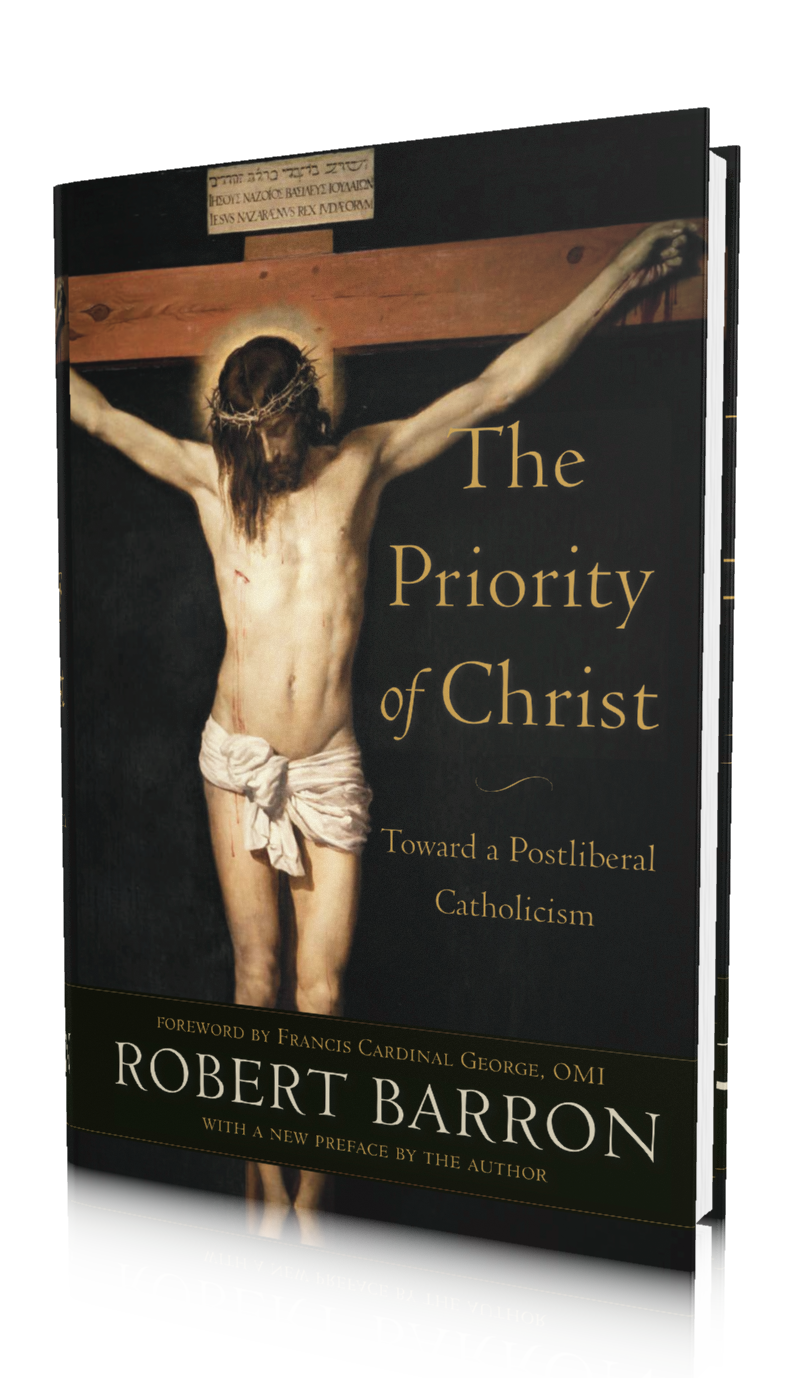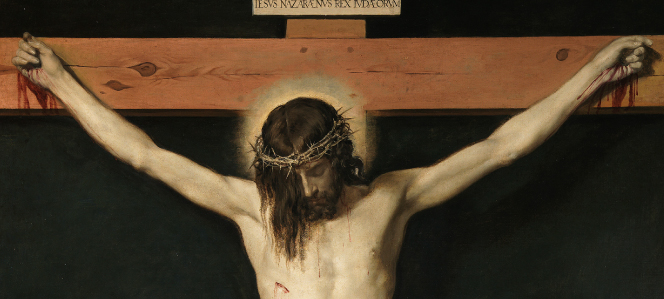Baker Academic has just released a beautiful new hardcover edition of Bishop Barron’s book, The Priority of Christ: Toward a Postliberal Catholicism. Here’s the description:
For a long time, Christians have tried to bridge the divide between Christianity and secular liberalism with philosophy and theology. Bishop Robert Barron shows that the answer to this debate—and the way to move forward—lies in Jesus. Barron transcends the usual liberal/conservative or Protestant/Catholic divides with a postliberal Catholicism that brings the focus back on Jesus as revealed in the New Testament narratives.
Barron’s classical Catholic postliberalism will be of interest to a broad audience including not only the academic community but also preachers and general readers interested in entering the dialogue between Catholicism and postliberalism. The hardcover edition includes a new preface by the author.
For a limited time, you can pick up your copy of “The Priority of Christ” through Word on Fire for just $25, which is $10 less than the retail price! But act fast because this is a limited time special.
Today, we’d like to share Bishop Barron’s preface to the new edition, as well as invite you to enter a book giveaway sponsored by Baker. The publisher has graciously agreed to send a free copy of the book to 10 lucky winners. So enjoy the preface below, and then be sure to enter the giveaway!
To grasp this book, the reader has to understand that I came of age in the United States in the immediate wake of the Second Vatican Council. Though the Conciliar texts themselves are rife with Scripture and deeply marked by the theological style of the Church Fathers, the implementation of the Council, at least in America, was thoroughly grounded in the assumptions of liberalism. By this admittedly slippery term I mean, in the religious context, an approach that commences with experience and then reads doctrine in light of experience. As Karl Barth pointed out over a century ago, this method results in the positioning of revelation by something extrinsic to itself, a move repugnant to the logic implicit in the New Testament. The liberal method was practiced by some of the greatest theological masters of the last two hundred years: Friedrich Schleiermacher, Ernst Troeltsch, Paul Tillich, Karl Rahner, David Tracy, among many others. It resulted in a form of Christian theology easier for the contemporary mind to grasp but, precisely for that reason, relatively bland, flattened out, and de-fanged.
 What this looked like on the ground was what I’ve described as “beige Catholicism.” Jesus was presented rather consistently as one religious teacher among many, a deeply wise and holy man, but not the Incarnate Word of God. The liturgy became a shared meal which embodied and celebrated the community, rather than the act by which the Son, as head of his mystical body, worships the Father in the communion of the Holy Spirit. The missionary impulse faded away almost completely, since there was nothing really distinctive that Jesus added to the general religious sensibility. Eschatology more or less collapsed into the work of social justice here below. A new Marcionism took hold, as the significance of Jesus was parsed in abstraction from the Old Testament and the history of Israel. In a word, what made Christ distinctive, novel, surprising, and indispensable largely evanesced. As a result, the Church sank into a kind of boredom, and boredom is never evangelically compelling.
What this looked like on the ground was what I’ve described as “beige Catholicism.” Jesus was presented rather consistently as one religious teacher among many, a deeply wise and holy man, but not the Incarnate Word of God. The liturgy became a shared meal which embodied and celebrated the community, rather than the act by which the Son, as head of his mystical body, worships the Father in the communion of the Holy Spirit. The missionary impulse faded away almost completely, since there was nothing really distinctive that Jesus added to the general religious sensibility. Eschatology more or less collapsed into the work of social justice here below. A new Marcionism took hold, as the significance of Jesus was parsed in abstraction from the Old Testament and the history of Israel. In a word, what made Christ distinctive, novel, surprising, and indispensable largely evanesced. As a result, the Church sank into a kind of boredom, and boredom is never evangelically compelling.
Therefore, along with many others of my generation, I perceived the need to move beyond the regnant liberalism. I say “move beyond” rather than repudiate, for I appreciate very much certain achievements of liberalism, especially in the area of apologetics. For example, I still happily use Tillich, Rahner, and Schleiermacher when I want to draw toward the faith someone who has wandered into complete unbelief. Their methods can function, mutatis mutandis, as a sort of preambula fidei for our time. Nevertheless, a fresh approach was the needful thing. And it should start, I reckoned, not with experience, but with Christ himself, with Jesus in all of his unnerving strangeness. From this unambiguously Christological starting point, The Priority of Christ gets underway, moving subsequently through the doctrine of God, epistemology, and ethics. My intention was not so much to present a complete systematics, but simply to show a way forward, to give at least a rough outline of what a thoroughly Christo-centric theology would look like. And my fondest hope was to present a theology that was, unlike the tepid liberalism of the time, evangelically efficacious.
The Priority of Christ was published in 2007, and in 2008, I commenced the filming of my documentary series CATHOLICISM. One of the principal inspirations for that film was Kenneth Clark’s magnificent Civilisation from the 1970’s, but an equally important motivation was to present at least some of the material of The Priority of Christ to a more general audience. Hence episode one of Catholicism deals with Jesus. It bears the title “Amazed and Afraid,” a phrase derived from the Gospel of Mark and designating the reaction of the disciples to the deeply troubling and unnerving figure whom they had elected to follow. The series then moves on to a consideration of God, the Church, the Sacraments, the Last Things, and the saints, those figures who most concretely embody the way of life opened up by Jesus. The saints profiled in the series—Katharine Drexel, Mother Teresa, Edith Stein, and Thérèse of Lisieux—are the same who I covered in The Priority of Christ under the rubric of a new approach to ethics.
It is a source of great joy to me that CATHOLICISM has been used very widely in the Church and has brought many people to conversion and/or to a richer relationship with the Lord. The success of the series has proven to me that the approach adopted in The Priority of Christ does indeed have evangelical power. Though it is written in a highly academic manner, this book has—and I say it unapologetically—an evangelical purpose. It is meant not simply to illumine the mind or to clarify theological concepts or to settle scores in the academic area, but rather to bring people to Jesus Christ.
